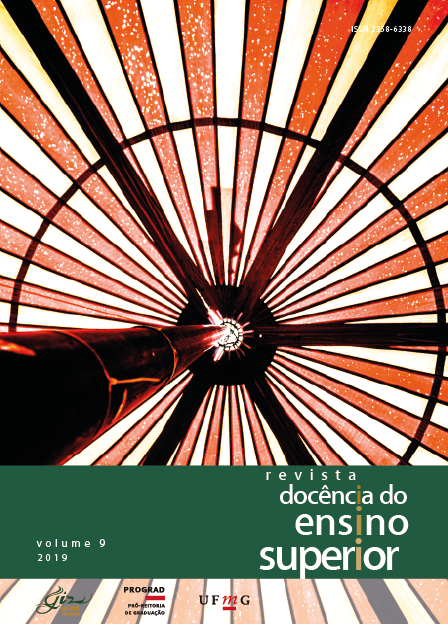Learning evaluation perspectives
from dogmas, rituals and rites to the ethics of good sense
DOI:
https://doi.org/10.35699/2237-5864.2019.2503Keywords:
Learning evaluation, Ethic, Good senseAbstract
The article aims to characterize how evaluative practices, especially in higher education, have increased as a doctrine, as a set of dogmas, rituals and rites, and how the ethics of good sense, with reflexive, sensitive and just bases, contribute to the unveiling of the real ontological nature of the act of evaluating. It is qualitative, bibliographic, and has the reflection as instrumentalization in the construct of its corpus. This document was problematized from the discussion of the evaluation as a pedagogical practice of reproduction (doctrine, set of rituals, rites and dogmas), in which we sought foundations that evidence the ethics of good sense as a route for the reversal of these praxes. As a main result, it is revealed that ethics is inseparable from the praxiological plane of the evaluation of learning, both categories being inseparable from the teaching-learning process.
Downloads
Downloads
Published
How to Cite
Issue
Section
License
Authors who publish in this journal retain the copyright and grant the journal the right of first publication, with the work simultaneously licensed under the Creative Commons Attribution License which allows the sharing of work with acknowledgment of authorship and initial publication in this journal.
Authors are authorized to take additional contracts separately, for non-exclusive distribution of the version of the work published in this journal (e.g. publish in institutional repository or as a book chapter), with acknowledgment of authorship and initial publication in this journal.
Open access policy:
Revista Docência do Ensino Superior is an Open Access journal, which means that all content is available free of charge, at no cost to the user or their institution. Users may read, download, copy, distribute, print, search, or link to the full texts of the articles, or use them for any other legal purpose, without seeking prior permission from the publisher or author, provided they respect the license to use the Creative Commons used by the journal. This definition of open access is in line with the Budapest Open Access Initiative (BOAI).
























